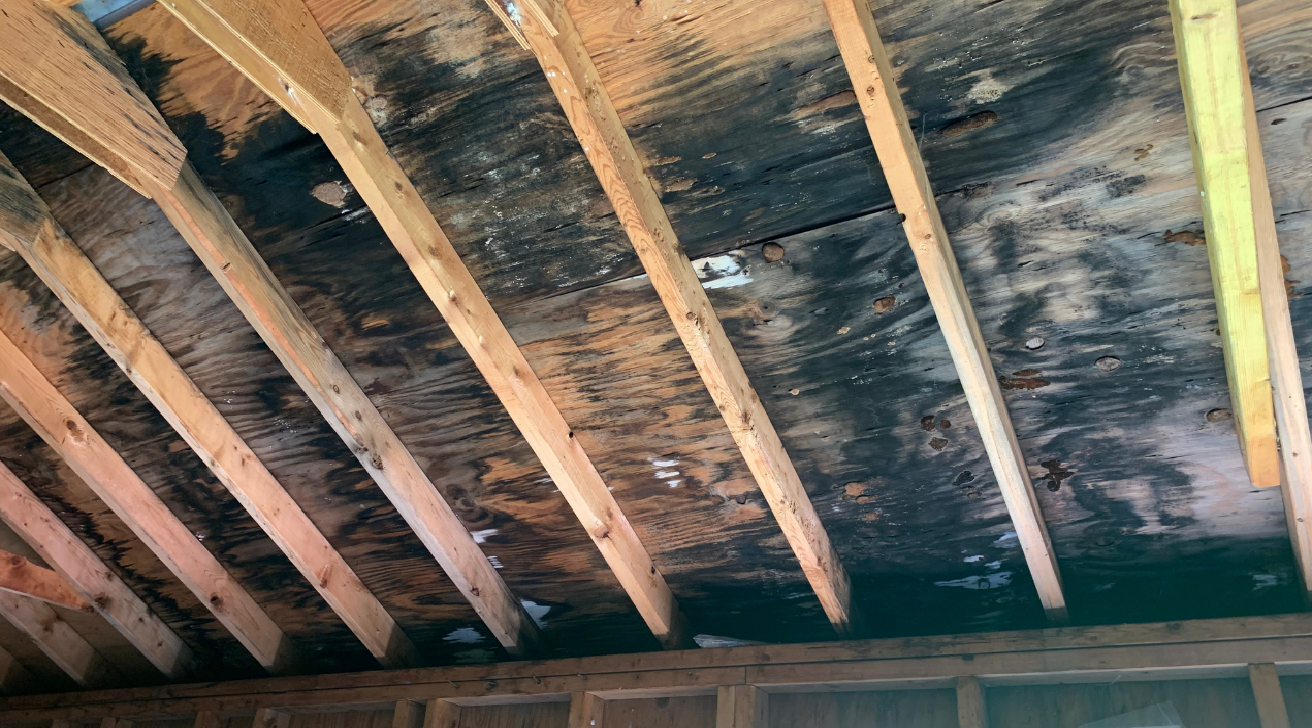Mold Testing Services in Everett, WA
Are you concerned about the possibility of mold invading your property? At PNW Mold Control, we specialize in mold testing, designed to give you the peace of mind you deserve. Mold can easily thrive in our damp climate, compromising indoor air quality and presenting health risks. By choosing our professional approach, you receive accurate assessments, clear guidance, and actionable solutions. Mold testing is a critical first step in protecting your family, employees, or tenants. Our thorough inspections and detailed reports ensure that you fully understand any mold issues in your building.
Why Mold Testing Matters
Understanding the Risks of Mold
Mold is a type of fungus that reproduces by releasing tiny spores into the air. When these spores settle in moist, nutrient-rich areas, mold colonies start to grow and spread. In Everett, where rainy seasons and high humidity are common, mold can proliferate behind walls, under carpets, and even inside HVAC systems. If left unaddressed, this hidden threat can cause respiratory problems, allergic reactions, and even structural damage.
Maintaining a Healthy Indoor Environment
For homes and commercial properties alike, mold can contaminate indoor air with allergens and irritants. Some individuals are particularly sensitive to mold spores, experiencing symptoms such as sneezing, skin rashes, and itchy eyes. In more severe cases, mold exposure can lead to serious respiratory complications. When you choose our testing services, we help you verify whether mold is present and identify the type of mold you’re dealing with. Armed with this information, you can take targeted action to eliminate mold at its source, safeguarding the health of everyone under your roof.
Preventing Structural Damage
Mold doesn’t merely pose health risks—it also can damage building materials such as drywall, wood, and insulation. When mold grows unchecked, it can weaken structures and lead to costly repairs down the road. Undetected leaks behind walls can slowly erode the integrity of your property if mold develops in those spaces. By scheduling professional testing, you can detect issues early and prevent significant damage. Early intervention often saves time, money, and stress.

Our Approach to Mold Testing
When you schedule an appointment with PNW Mold Control, our team arrives on-site with professional equipment and a commitment to thoroughness. Our multi-step process delivers reliable results, ensuring you have a complete picture of your property’s mold status.
Visual Assessment
We start by examining both the interior and exterior of your property. This step involves checking for telltale signs of mold growth, such as discoloration, peeling paint, or musty odors. We also look for water stains on ceilings or walls, which often indicate hidden moisture sources. This visual inspection helps us determine where to focus our sampling efforts and uncover potential problem spots.
Air and Surface Sampling
Next, we collect air and surface samples to analyze mold spore levels in different areas of your property. Air samples reveal how many spores are present in the indoor atmosphere, while surface samples allow us to confirm whether visible growth is truly mold and identify the specific type. Sampling protocols are carefully followed to avoid contamination and ensure the accuracy of results. These samples provide quantitative data that goes beyond what the naked eye can detect.
Laboratory Analysis
All collected samples are sent to a certified laboratory for in-depth analysis. Expert microbiologists examine each sample under a microscope to identify mold species and measure spore concentration. By doing so, we gather vital information regarding the type of mold present—whether it’s a common allergenic mold or a more toxic variety. Our collaboration with accredited labs guarantees that you’ll receive precise, reliable findings.
Detailed Reporting
Once lab results are ready, we compile them into a comprehensive report. This document breaks down the types and concentrations of mold found, the implications for indoor air quality, and our professional recommendations. We’ll explain the data in straightforward terms, ensuring that you understand what the numbers mean for your property. With this knowledge, you can make informed decisions regarding remediation, repairs, and ongoing prevention strategies.
Common Mold Hotspots
Bathrooms and Kitchens
Bathrooms and kitchens are prime locations for mold growth due to the abundant moisture from showers, sinks, and cooking activities. Even a small leak under the sink can create a perfect environment for mold to flourish. If you notice a persistent musty smell or see dark spots in grout lines, it’s time to arrange testing.
Basements and Crawl Spaces
Basements and crawl spaces often suffer from poor ventilation, higher humidity, and occasional flooding. These conditions attract mold, particularly when water seeps through cracks or foundation walls. Because these areas are out of sight, issues can remain undetected for months, making regular inspections crucial.
Attics
A leaky roof or poor insulation can trap moisture in your attic, turning it into a breeding ground for mold. When left unchecked, attic mold can spread downward into living areas, damaging structural components along the way. Regularly checking your attic for signs of dampness or discoloration is an important preventive measure.
HVAC Systems
Your heating, ventilation, and air conditioning (HVAC) system circulates air throughout the entire property. If mold colonizes ductwork or air conditioning coils, it can spread spores into every room. Periodic inspection and cleaning of HVAC components can help you avoid widespread contamination.
Health and Safety Considerations
Allergic Reactions and Asthma
Individuals with allergies or asthma are at heightened risk when exposed to mold spores. Common symptoms include congestion, sneezing, coughing, and itchy eyes. Over time, prolonged exposure can exacerbate conditions, leading to chronic respiratory issues. Mold testing pinpoints the source, helping you minimize these risks.
Toxic Mold Varieties
Not all mold species pose the same level of threat, but some can produce toxic byproducts known as mycotoxins. Stachybotrys chartarum, often called “black mold,” is notorious for its potential to trigger more severe health problems. While not every dark-colored mold is toxic, testing is critical to determine the exact species you’re dealing with.
Children and Older Adults
Young children, older adults, and those with compromised immune systems may be more susceptible to mold-related health problems. For these individuals, living in a mold-infested environment can lead to a higher likelihood of complications.
Workplace Wellness
For employers, mold doesn’t only present a health hazard—unaddressed mold growth could reduce workplace productivity, trigger employee absences, or even lead to legal implications. Conducting regular inspections and tests for mold ensures a safer working environment, fostering employee well-being and avoiding potential liabilities.
The PNW Mold Control Difference
Local Expertise
Our team understands Everett’s climate and construction practices. We’ve served homes and businesses throughout the region, honing our expertise in identifying and mitigating mold issues specific to the Pacific Northwest. From waterfront properties to hillside residences, we know how to tailor our testing approach to deliver accurate, meaningful results.
Advanced Techniques
We don’t rely on guesswork or one-size-fits-all solutions. Our advanced testing techniques and state-of-the-art equipment enable us to pinpoint trouble spots quickly and effectively. Whether your property is brand-new or decades old, we have the tools and know-how to uncover hidden mold growth.
Transparent Communication
Our goal is to simplify the process for you. We’ll walk you through each step, from scheduling the appointment to explaining lab findings. Our reports are easy to understand, and we’ll gladly answer any questions you have about your results or our recommendations.
Ongoing Support
At PNW Mold Control, we strive to build long-term relationships with our clients. If testing reveals a problem, we can connect you with trusted remediation partners or offer guidance on how to proceed. Even after the initial issue is resolved, we encourage routine checkups to ensure the mold doesn’t return. Our commitment to quality service doesn’t end with the final report.
Peace of Mind
One of the most significant benefits of scheduling mold testing is the peace of mind you gain. Knowing that you have a clear understanding of your property’s indoor environment can reduce stress and anxiety. We aim to give you the confidence and reassurance you deserve in your home or workspace.

Best Practices for Mold Prevention
While professional testing is essential for identifying mold, prevention strategies can help keep your property mold-free in the long run. Here are some tips:
- Maintain Proper Ventilation: Ensure that your home or workplace has adequate airflow. Use exhaust fans in bathrooms and kitchens to reduce humidity levels, and consider installing a dehumidifier in damp areas.
- Address Leaks Promptly: Even small drips can lead to significant mold growth over time. Regularly check plumbing, roofs, and windows for any signs of leaks, and fix them as soon as possible.
- Control Indoor Humidity: Mold thrives in environments where humidity exceeds 60%. Monitor indoor humidity levels and use air conditioning, dehumidifiers, or proper ventilation to keep moisture under control.
- Clean and Dry Spills Quickly: If water spills on carpets or rugs, dry them thoroughly to prevent mold from taking hold.
- Regular Inspections: Make routine checks of basements, attics, and crawl spaces part of your home maintenance schedule. Early detection can prevent a minor issue from becoming a major problem.
Secure Your Property and Health Today
Don’t let mold jeopardize the safety and integrity of your home or business. Contact PNW Mold Control now to schedule mold testing and get an expert evaluation of your indoor environment. Our friendly team is ready to guide you through the process, answer your questions, and recommend the next steps for a clean, healthy space.
Call us or fill out our online form to request an appointment. Take the first step toward safeguarding your property, your loved ones, and your peace of mind.
Frequently Asked Questions
How Do I Know If I Need Mold Testing?
You should consider mold testing if you detect a persistent musty odor, see visible signs of mold, or experience unexplained health issues like allergies and respiratory problems. Water damage or high humidity levels are also strong indicators. When in doubt, a professional assessment is always recommended.
How Long Does the Testing Process Take?
The length of the testing process can vary depending on the size of your property and the scope of the investigation. Generally, the on-site inspection and sample collection can be completed within a few hours. Lab results typically take several days to a week to process, after which you’ll receive a comprehensive report.
Is All Mold Dangerous?
Not all mold species are toxic, but any mold growth can adversely affect indoor air quality and trigger allergies or asthma symptoms. Some molds, such as black mold (Stachybotrys chartarum), have a higher potential to produce mycotoxins, which can be harmful to health. Testing is crucial to determine the type of mold you have and to address it appropriately.
Can I Conduct Mold Testing Myself?
While do-it-yourself kits are available, they often lack the reliability and precision of professional testing. DIY kits may not provide a comprehensive analysis of mold spore types and concentrations. Professionals have specialized equipment, follow strict protocols, and send samples to certified labs, ensuring you get an accurate and actionable report.
What Happens If Mold Is Found?
If mold is detected, we’ll discuss your results in detail and recommend the next steps. Typically, this involves hiring a professional remediation service to remove the mold safely and thoroughly. We also advise addressing the underlying moisture problem to prevent future growth. Regular follow-up tests can verify the effectiveness of remediation efforts.
How Often Should I Get My Property Tested for Mold?
The frequency of testing can depend on factors like your property’s age, history of water damage, and local climate. Some homeowners schedule annual or biannual inspections, while others only test after a significant leak or flooding incident. If you have people with allergies or compromised immune systems, more frequent testing may be beneficial to maintain a healthy living environment.
